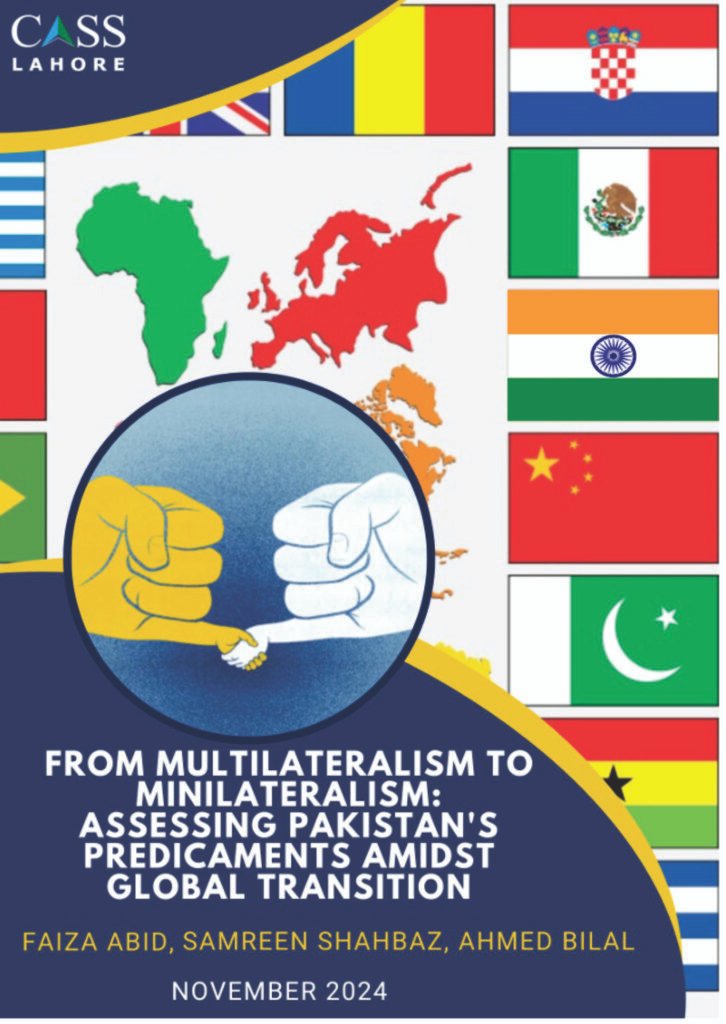FROM MULTILATERALISM TO MINILATERALISM:ASSESSING PAKISTAN’S PREDICAMENTS AMIDST GLOBAL TRANSITION

ABSTRACT
In the contemporary era, global governance has shifted from traditional multilateral mechanisms to increasingly influential minilateral arrangements. This shift stems from the perceived inefficacy of multilateral frameworks, adjustments in global power balances, and evolving partnership dynamics among nations. This paper examines Pakistan’s position within this evolving framework, which is now predominantly shaped by minilateralism. In this recalibration of the international system, the United States has found a regional partner in India, aligning closely with it as a counterweight to China. While India approaches minilateralism as a calculated game of chess, prioritising incremental gains and regional dominance, Pakistan views it through a poker-like framework, aiming for mutually beneficial outcomes. This distinction highlights contrasting national priorities in shaping regional partnerships and maximising strategic advantages. The study explores the strategic isolation Pakistan faces due to its limited inclusion in minilateral groupings that significantly influence regional and global power structures. By assessing the relevance and implications of this new governance model for Pakistan, the paper identifies key weaknesses that require attention and highlights potential advantages Pakistan could leverage within this redefined global order. The study concludes with recommendations for effectively dealing with the shifting geopolitical landscape to enhance Pakistan’s prosperity and security.
Authors
Faiza Abid, Samreen Shahbaz & Rana M. Ahmed Bilal
CASS LAhore

The Centre for Aerospace & Security Studies (CASS) was established in July 2021 to inform policymakers and the public about issues related to aerospace and security from an independent, non-partisan and future-centric analytical lens.
CASS Newsletter
- Home
- About Us
- Research Domains
- Publications
- Events
- Gallery
- Contact Us
@2021 - All Right Reserved. Designed and Developed by PenciDesign




